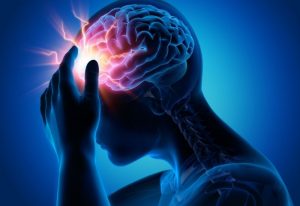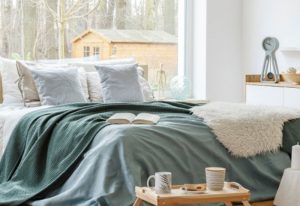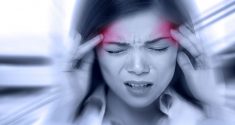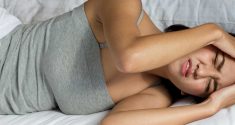New findings further support a direct link between sleep and headaches. This adds to the growing body of research that shows getting suffiecient sleep is vitally essential to mental and physical health.
The Connection Between Sleep and Headaches

In a more recent study, which was published in 2017, researchers found that this link was just the start of a cycle: Lack of REM sleep contributes to the development of headaches and migraines, which, in turn, cause more sleep difficulties. As an individual sleeps less, he or she are more likely to suffer from chronic headaches. The researchers concluded that this cycle was the result of both sleep and headaches utilizing the same patterns and structures in the brain.
More Evidence That Headaches and Migraines Are Linked to Sleep
Sleep is an essential part of the pain relief process that the body uses to alleviate chronic conditions. As a person sleeps, their brain releases hormones, such as dopamine and melatonin, which aid in alleviating pain. There are also hormones released during deep REM sleep that help the body combat unnecessary inflammation that’s triggered by the immune system.
When sleep is disturbed, even briefly, these processes are interrupted and pain sensations are amplified. This makes it necessary to treat sleep disorders alongside treating chronic conditions so pain relief and good sleep are both possible.
In one study, it was found that a lack of sleep contributed to higher risks for depression as well as producing more headache pain. This study found that both a lack of sleep and depressive episodes triggered a response in the central nervous system that led to heightened pain. The study also discovered that the pain threshold is lowered in people with sleep deficiencies, which contributes to the increased level of pain the individual experiences. In other words, people who don’t get enough sleep will experience headaches and migraines more acutely.
In a study conducted at Elliot Hospital in Manchester, NH, it was also discovered that the time of sleep and quality of sleep also affected the risks for headache pain. In particular, people awoke with morning headaches more frequently if they weren’t sleeping traditional hours, experienced sleep apnea or suffered from parasomnia. Even an unusual circadian rhythm was enough to cause people to experience headaches and migraines upon waking. The researchers in this study concluded that doctors treating patients for chronic headaches or migraines should also look into their sleep patterns to identify a correlation.
More research has helped to reveal that people who suffer from sleep problems are also likely to experience more headaches and migraines. The hypothalamus is the part of the brain that regulates sleep and wakefulness, but it also helps in regulating pain sensations. This is why sleeping too much can trigger migraines just as easily as failing to get enough sleep. You can reduce the chances of this happening by ensuring you maintain a similar sleep schedule every day of the week. If you do sleep later on your days off, be sure you don’t get more than an additional two hours of sleep on those days.
Tips to Help You Sleep Better Through the Night
Knowledge of the link between sleep and headaches can be a valuable tool when it comes to reducing the likelihood of experiencing these uncomfortable occurrences. Here are several ways to ensure that you get a sufficient amount of the quality sleep you need each night.
Limit Your Caffeine Intake
When it comes to making lifestyle changes to help you sleep better, reducing your intake of stimulants is especially important. Caffeine will stay in your blood supply for up to six hours, which is why you should have your consumption of coffee, soda and tea planned out ahead of time.
Stop drinking caffeinated beverages at least six hours before you plan to go to bed. Ideally, you should switch to water by late afternoon to help your body flush the remaining caffeine out of your system.
Limit Your Use of Controlled Substances
The nicotine in cigarettes also acts as a stimulant, so you should avoid smoking before bedtime. If you can’t stop smoking altogether, reduce how much you smoke as it gets later in the day.
Alcohol is another problem when it comes to getting good sleep. Even though alcohol is a depressant, it can disrupt your sleep cycle. Often, intoxicated people will fall asleep quickly, but, as the effects of the alcohol wear off, they will awaken. Someone in this situation may find it difficult to fall back asleep once they have awakened during the night.
Improve Your Sleep Environment

You should also use curtains, shades or blinds to block exterior light from getting into your bedroom. If necessary, wear a sleep mask to block out any light that does get into your room. Earplugs may also help in eliminating sounds that could disrupt your sleep.
Get More Exercise
You should go for a walk, jog or bicycle once a day as a means of fitting more physical activity into your daily routine. Exercising outdoors can also be helpful in resetting your circadian rhythm. Physical activity can help you release any pent up energy you may feel, helping you to feel more relaxed later in the evening.
Try to avoid exercising too close to your bedtime, however, because this can have an opposite effect on your energy levels that late at night. It’s better to exercise early in the afternoon when the sun is still out. By nightfall, you’ll feel relaxed and sleepy, ensuring you can get the rest you need to avoid morning headaches.







